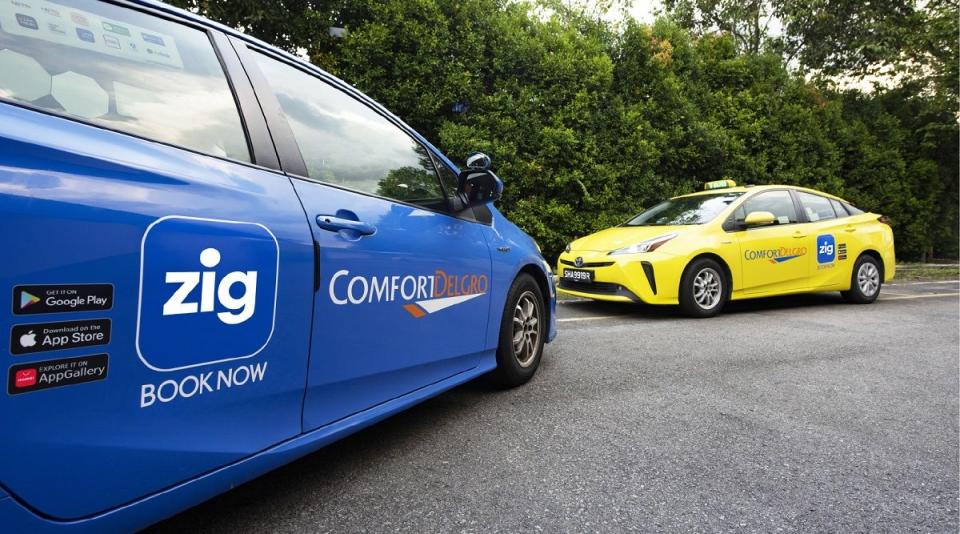Consolidation of Strides Taxi and Premier have no major implications to ComfortDelGro: analysts

DBS has kept 'buy' on CDG with a target price of $1.66.
Analysts are seeing no downside risks to ComfortDelGro (CDG) C52 after the merger of SMRT Corporation’s taxi business, Strides Taxi and Premier Taxi. The announcement was made by SMRT on April 13.
Following the news, the team at DBS Group Research has kept its “buy” call with an unchanged target price of $1.66 while UOB Kay Hian analyst Llelleythan Tan has also kept his “buy” call with the same target price of $1.29.
The merger between Strides Taxi and Premier Taxi, which will come under a new joint venture company (JVCo), Strides Premier Pte Ltd, will have a fleet of about 2,500 taxis, making it the second largest fleet after CDG’s fleet of 8,740 taxis.
To the DBS team, the merger of SMRT Corporation’s taxi business, Strides Taxi, and Premier Taxi, may be a sign of the industry bottoming out. The team adds that the merger may reflect operators’ sentiment that things are getting tougher within the industry and that scale is needed for operating efficiency. This is particularly so with Covid-19 restrictions during the past few years, which made it even more challenging for operators.
“With improved mobility, eased restrictions and better clarity on outlook, there could be more willingness to seal a deal,” says the DBS team in its April 14 note.
That said, the merger will not have any major implications to CDG, as far as the team can see. At this point, CDG still holds the leading share by a wide margin. In fact, the merger could aid in lessening competition along with operators focused on profitability, thereby leading to a more sustainable environment for the industry.
To this end, CDG’s strategy of implementing a 5% commission on ride-hail fares remains positive and provides more levels for the group’s revenue uplift compared to the traditional method of fleet and rental revenue.
Based on statistics by the Land Transport Authority (LTA), the percentage of ride-hail versus street hail now stands at 15% of total point-to-point, down from 22% in January 2021.
“This means that with commuters’ habits and preference towards ride-hail booking (either for taxis or private hire cars), this should lead to higher commissions,” the team writes.
Shares in CDG may have been out of favour recently with the counter underperforming on the back of several headwinds including taxis, China restrictions and overseas public transport. Yet, the team remains optimistic in that the counter’s share price has bottomed out.
“With share price trading at below 1x P/B with improving profitability, we believe confidence should return over time,” says the team.
To UOB Kay Hian’s Tan, the merger came as no surprise. “[This is] given stiff competition from ride-hailing competition, a shortage of taxi drivers in Singapore and rising inflationary pressures chipping away at profitability,” he writes.
“Furthermore, according to statistics from the LTA, taxi fleets for both Strides and Premier have been decreasing since 2017, along with every other domestic taxi operator. Facing strong industry headwinds, the consolidation of smaller taxis operators was likely to happen,” he adds.
In Tan’s view, the merger has no downside risks to CDG. Instead, the transport operator may benefit from the situation, as it could see new taxi driver sign ups from the two merging companies, given CDG’s commanding taxi market share and business stability.
That said, more taxi drivers will switch to ride-hailing peers like Grab and Gojek despite the higher commissions as street-hail trips have been on a recent downtrend.
This, says Tan, may explain the secular decrease in taxi fleets. As such, he expects CDG to increase its current taxi commission rate of 5% in 2Q2023 to benefit from the increasing adoption of ride-hailing.
After accounting for lower taxi rental rebates assumptions, Tan has upped his earnings estimates for the FY2023 to FY2025 by 3% to 6%. His new patmi forecasts are $145.4 million for FY2023 (from $137.3 million previously), $168.6 million for FY2024 (from $163.1 million previously) and $200.9 million for FY2025 (from $191.8 million previously).
“We opine that CDG is fairly valued at current price levels, despite improving fundamentals, a decent dividend yield and a robust balance sheet,” says Tan, although near- to medium-term earnings headwinds, margin compression and a lack of catalysts would cap share price performance, in his way.
“We recommend investors to take profit on any run-up in share price performance close to our target price,” he adds.
As at 2.10pm, shares in CDG are trading 1 cent higher or 0.83% up at $1.21.
See Also:
Click here to stay updated with the Latest Business & Investment News in Singapore
Brokers' Digest: ESR-LOGOS REIT, SIA Engineering Company, Singtel, ThaiBev, Bumitama Agri
RHB expects MAS to increase slope of the S$NEER path to 2.0% at upcoming April meeting
RHB lowers Manulife US REIT's TP to 40 US cents after sale of Tanasbourne
Get in-depth insights from our expert contributors, and dive into financial and economic trends

 Yahoo Finance
Yahoo Finance 